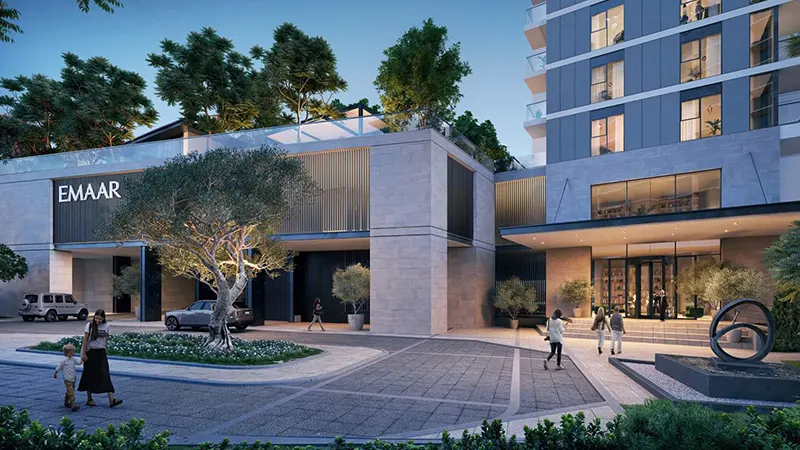Abu Dhabi, the capital of the United Arab Emirates, is known for its rich culture, stunning architecture, and thriving economy. With its strategic location and robust infrastructure, it has become a magnet for investors looking to buy property. This article explores the essential aspects of buying property in Abu Dhabi, providing valuable insights and guidance for potential buyers.
1. Understanding the Abu Dhabi Real Estate Market
The real estate market in Abu Dhabi has undergone significant transformations over the past decade. With ambitious development projects and a growing expatriate population, the demand for residential and commercial properties has surged. The government’s commitment to diversifying the economy has also contributed to a stable and attractive real estate environment.
Key Features of the Market
- Diverse Property Types: The market offers a variety of property types, including villas, apartments, and commercial spaces. Buyers can find everything from luxury high-rise apartments in the Corniche area to spacious villas in more suburban communities.
- Government Regulations: The Abu Dhabi government has implemented several regulations to ensure a transparent and fair property market. Foreign investors can now purchase freehold properties in designated areas, making it easier for expatriates to invest.
2. Legal Framework for Property Purchase

Understanding the legal framework is crucial for anyone looking to buy property in Abu Dhabi. The process is governed by laws that ensure the rights of both buyers and sellers are protected.
Key Legal Considerations
- Freehold vs. Leasehold: Foreign buyers can purchase freehold properties in designated areas, allowing full ownership. Leasehold properties, however, are available for a fixed term, usually up to 99 years.
- Property Registration: All property transactions must be registered with the Abu Dhabi Department of Municipalities and Transport (DMT). This step ensures legal recognition and protection of ownership rights.
- Financing and Mortgages: Buyers can obtain financing from local banks, but foreign nationals may face stricter requirements. It’s advisable to consult with financial institutions to understand mortgage options and terms.
3. Popular Areas for Property Investment
Abu Dhabi offers a range of neighborhoods, each with its unique character and appeal. Understanding these areas can help buyers make informed decisions based on their lifestyle preferences and investment goals.
Top Areas to Consider
- Corniche: Known for its stunning waterfront views, the Corniche is one of the most desirable areas in Abu Dhabi. It features a mix of luxury apartments and high-end amenities, making it ideal for those seeking a vibrant urban lifestyle.
- Yas Island: A hub for entertainment and leisure, Yas Island is home to theme parks, golf courses, and luxury resorts. The area attracts both residents and tourists, making it a strong investment choice.
- Al Reem Island: This rapidly developing area offers a mix of residential, commercial, and recreational spaces. It is known for its modern architecture and proximity to the city center, appealing to young professionals and families alike.
- Saadiyat Island: Renowned for its cultural institutions, including the Louvre Abu Dhabi, Saadiyat Island offers luxury living in a serene environment. The island’s focus on art and culture makes it a unique investment opportunity.
4. The Buying Process: Step by Step

Buying property in Abu Dhabi involves several steps, from identifying the right property to completing the transaction. Understanding this process can help streamline the experience for buyers.
Step-by-Step Guide
- Research and Identify Properties: Start by researching the market and identifying areas that align with your investment goals. Online listings, real estate agents, and local market reports can provide valuable insights.
- Engage a Real Estate Agent: A local real estate agent can guide you through the process, helping you find suitable properties and negotiate terms. Ensure that your agent is licensed and knowledgeable about the Abu Dhabi market.
- Conduct Due Diligence: Before making an offer, conduct thorough due diligence. This includes reviewing property documents, checking for any outstanding debts, and understanding the terms of the lease or ownership.
- Make an Offer: Once you find a property you wish to purchase, submit a formal offer. Negotiations may ensue, and it’s essential to remain flexible during this stage.
- Secure Financing: If you require financing, now is the time to finalize mortgage arrangements with your bank. Be prepared to provide necessary documentation, including proof of income and credit history.
- Sign the Sale Agreement: Once the offer is accepted, a sale agreement will be drafted. This document outlines the terms of the sale, including the purchase price and any conditions.
- Complete Property Registration: After signing the sale agreement, you must register the property with the DMT. This process involves paying the necessary fees and submitting required documents.
- Transfer Ownership: Once the property is registered, ownership is officially transferred. You will receive the title deed, confirming your ownership rights.
5. Costs Associated with Buying Property
Understanding the costs involved in buying property is crucial for budgeting effectively. Buyers should be aware of both direct and indirect costs associated with the purchase.
Key Costs to Consider

- Property Price: This is the primary cost and will vary significantly depending on the location and type of property.
- Registration Fees: The DMT charges registration fees, typically around 3% of the property price. This fee is payable at the time of registration.
- Real Estate Agent Fees: If you engage a real estate agent, be prepared to pay a commission fee, usually around 2% of the property price.
- Maintenance Fees: For apartment buyers, consider ongoing maintenance fees, which cover building upkeep and amenities.
- Mortgage Costs: If financing the property, account for mortgage arrangement fees, valuation costs, and insurance.
6. Tips for First-Time Buyers
For those new to the Abu Dhabi real estate market, navigating the process can be daunting. Here are some valuable tips to ensure a smooth experience.
Helpful Tips
- Conduct Thorough Research: Spend time researching different areas, property types, and market trends. This knowledge will empower you to make informed decisions.
- Set a Budget: Establish a clear budget, including all associated costs. This will help you narrow down your options and avoid overspending.
- Work with Professionals: Engaging a reputable real estate agent, lawyer, and financial advisor can provide you with essential support and guidance throughout the buying process.
- Visit Properties in Person: Whenever possible, visit properties in person. This will give you a better sense of the space and the surrounding area.
- Be Patient: The buying process can take time, especially if you’re navigating legal requirements and negotiations. Patience is key to making the right investment.
Conclusion
Buying property in Abu Dhabi presents an exciting opportunity for both local and international investors. With a growing market, diverse property options, and a supportive legal framework, Abu Dhabi is an attractive destination for real estate investment. By understanding the market dynamics, legal considerations, and the buying process, potential buyers can make informed decisions and find properties that meet their needs and investment goals. Whether you’re looking for a family home or a lucrative investment, Abu Dhabi has something to offer everyone.

